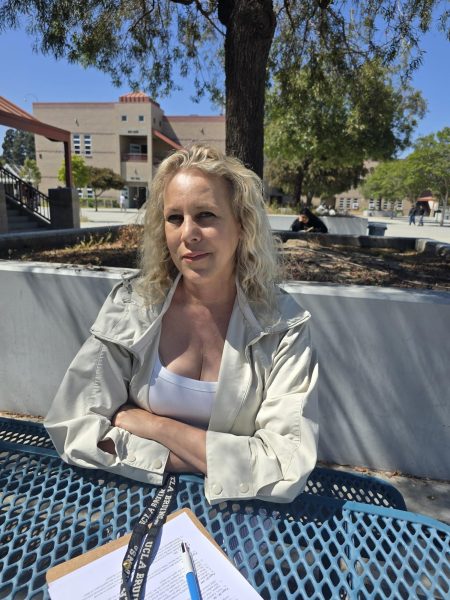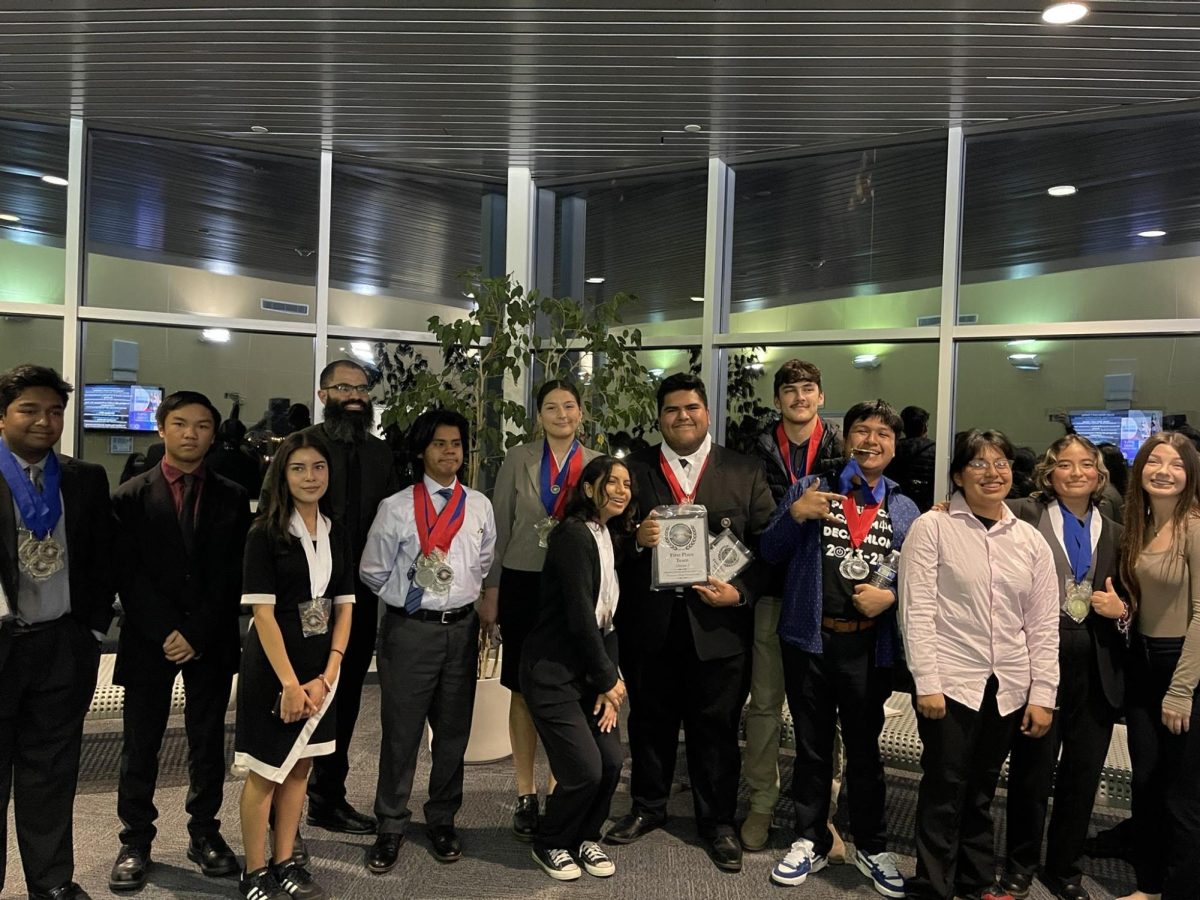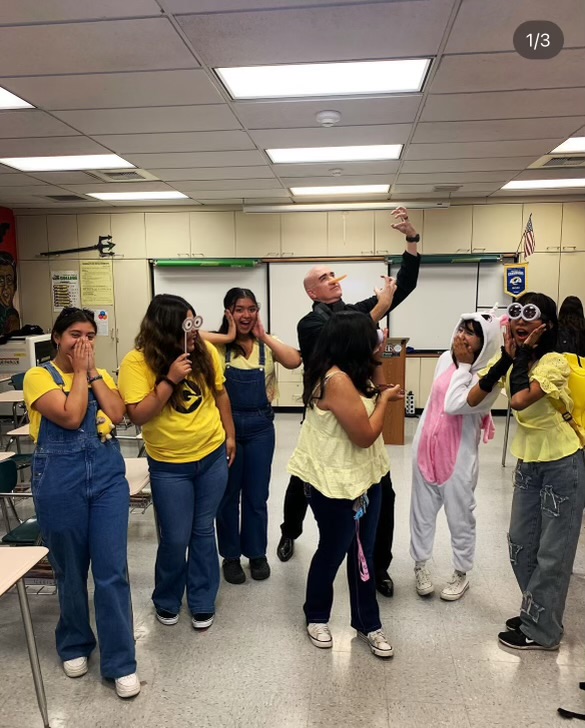Question the world and everything that you see. Ask why that’s the way it is, and ask how it came to be this way. Once you do, ask the most imperative question of all; should things remain that way? That’s one thing Ms. Nichols, an English teacher here on campus at Pacifica, teaches in her classes; critical thinking and how it can be used in the environments around us, whether social, political, or cultural. She may not teach ethnic studies or political science but she encourages her students to challenge the world around her. To look at the world in different lenses, even if the lenses they choose are not ones they are comfortable with. To have empathy, to have compassion as well as understanding of others. To learn to listen to learn, and to listen to understand others, not just judging them from the start.
The following is an interview on why she chose to get into teaching and in her eyes what she loves the most about her profession:
“At first I initially got into teaching because to be honest with you at the time I was a young mom. I love reading and I love books so I decided to combine my love for both of these in one; as an English teacher. I originally wanted to be an architect, with my major being in architecture. I loved designing and I was great at math, plus the lifestyle that would come with the career. Just the idea of creation, and being able to travel while at it was great. If I became an architect, I would’ve built a house connected for my family, or thinking of ways to design homes and spaces in general. I became a teacher instead and I’m glad that I have. Being around students, their energy, it brings me to life. I love my students because they’re so young, just so full of wonder of the world around them. They want to do better, they want to be on the side of progress. They still want to change, even if they aren’t able to do much at their age. How my students are open-minded, how they have hope, that attitude about life brings me joy.
 When I meet students who are troubled youth, what I do is I sit them down, and I talk to them. Troubled youth just need support and when you give them it, they run with it and grow with it, succeeding in life. When we get older, we tend to get cynical about the world. We think,’That’s the way it is, and that’s how it’ll always be.’ When I talk to my students, they believe in themselves, that they can make an impact for the betterment of this world. As a result, my classroom has been an amazing place to be and I’m proud to see students here at Pacifica grow, it’s exciting to be around! What I want my students to succeed in is critical thinking. I don’t think you can ever evolve and grow if you don’t question yourself or your surroundings. Ask, question it. If something comes along and contradicts your beliefs and is better, do it. Critical thinking, to me, is key and I’ve told my students this; the definition of ignorance is the rejection of critical thinking. You can have a master’s degree but if you reject new knowledge, you’re staying in a perpetual state of ignorance. I know adults like this and I want my students to be better than this. For themselves and the world.”
When I meet students who are troubled youth, what I do is I sit them down, and I talk to them. Troubled youth just need support and when you give them it, they run with it and grow with it, succeeding in life. When we get older, we tend to get cynical about the world. We think,’That’s the way it is, and that’s how it’ll always be.’ When I talk to my students, they believe in themselves, that they can make an impact for the betterment of this world. As a result, my classroom has been an amazing place to be and I’m proud to see students here at Pacifica grow, it’s exciting to be around! What I want my students to succeed in is critical thinking. I don’t think you can ever evolve and grow if you don’t question yourself or your surroundings. Ask, question it. If something comes along and contradicts your beliefs and is better, do it. Critical thinking, to me, is key and I’ve told my students this; the definition of ignorance is the rejection of critical thinking. You can have a master’s degree but if you reject new knowledge, you’re staying in a perpetual state of ignorance. I know adults like this and I want my students to be better than this. For themselves and the world.”


